undecided.
 35 Stillman Street, Suite 121
35 Stillman Street, Suite 121
San Francisco, CA 94107
www.zestbooks.net
Text copyright 2014 Genevieve Morgan
All rights reserved. No part of this publication may be reproduced or used in any form or by any menasgraphic, electronic, or mechanicl, including photocopying, recording, or information storage and retrieval systemswithout the written permission of the publisher.
Young Adult Nonfication / School & Education
Library of Congress control number: 2013951198
ISBN: 978-1-936976-32-4
Cover design: Tanya Napier and Theresa Currie
Interior design: Theresa Currie
Manufactured in the U.S.A.
DOC 10 9 8 7 6 5 4 3 2 1
45XXXXXXXXX
CONNECT WITH ZEST!
zestbooks.net/blog
zestbooks.net/contests
twitter.com/zestbooks
facebook.com/zestbook
facebook.com/BooksWithATwist
pinterest.com/zestbooks
Not I, nor anyone else can travel that road for you.
You must travel it by yourself.
It is not far. It is within reach.
Perhaps you have been on it since you were born, and did not know.
Perhaps it is everywhereon water and land.
Walt Whitman, Leaves of Grass
ACKNOWLEDGMENTS
This book exists thanks to Dan Harmon and Jan Hughes at Zest Books, and the advisory teen peer group that supported and cheered its development all along the way. I would not have had the stamina to plow through the reams of research involved with this kind of project if it had not been for them, and for the many other teens (and their parents and teachers) who really, really wanted this book and talked to me about why it was so necessary.
I also want to thank Kate Coon, Holly Bull, Aiden Rooney, Doug Drew, Penelope Trunk, and John C. McCain for contributing their insights culled from years and years of guiding young people through this bewildering transition. To Andrew Thompson for his help with some of the research (and his own post-graduate outlook). Additional bows of gratitude to all of you teachers, students, and parents who shared your personal stories of indecision with me. May you embrace the future with gusto!
Auto finally, thanks to my parents, who lived through the roller-coaster of my high school years and still paid for my college education. And to my own teens, Graham and Wyeth, who put up with their mom being away for long stretches to write. And to Tom, for traveling the adult universe thus far with me.
contents
Introduction
S o here you are, approaching the end of high school. Endings are hard, even if you didnt like high school all that much. Endings signal a transition and a need to let go of old ideas and start something new. The problem comes when you have no clue about what that something new is. Thats when it feels easier just to follow the flow of trafficdo what everyone else is doing; dont ask questions; keep your head down. The herd mentality wins because bucking the herd feels too stressful. And when you are in your teens, its even that much more stressful, since the herd can be really judgmental. In your case, the herd (that is, 66.2 percent of last years graduating class of high school seniors) is heading to college. As a result, youre probably hearing a lot about college right now.
The tidal wave of college talk usually starts to build in sophomore yearmaybe even freshman year for some. By junior year, its all many of the adults around you can talk about: schoolwork, ambition, test scores, hobbies, college visits, applications. If you are very lucky, you may already have a good idea about what you want to do when you grow up. Maybe youve always wanted to be a doctor or an actress or a banker or a soldier, and youve been tailoring your high school experience to meet those expectations. But iflike most teensyou are deeply confused or torn, or have absolutely no clue about what you want to do next, then congratulations! You are in exactly the right place. I have written this book for you!
That distinction between what you want to do versus what you are expected to do is an important oneespecially in the United States, where many teens default to college directly after graduating high school. There are good reasons for this, which Ill talk about in a minute, but when it comes to youyour dreams, desires, and passions, your budget, your innate talents, and the things you are good atcollege may or may not be the obvious and natural choice right after graduation. You might be happier taking a year or two to find yourself through work, service, or travel before (or maybe instead of) going to college. In Europe, taking time between high school and college to explore is such a common tradition there is even a name for it: Wanderjahr, German for wandering year. Our concept of a gap year comes from that tradition. You dont have to travel very far anymore to go exploring. You can do almost anything, from learning computer animation to speaking French or perfecting your meditation, via the internet. So dont feel bad if youre undecided. Feel normal.
Amidst all this talk of college, Im sure youre also painfully aware of the huge, green elephant in the middle of the conversation: You know, the one that looks and smells like money (or more accurately) money you are likely to owe after you graduate. College is just flat-out, incredibly expensive; yet, at the same time, going to college substantially increases career opportunities and earning potential for graduates. So theres the rub. In order to eventually get a good job (one that will pay off your debts), you have to face going into debt first. As of 2013, the average loan debt carried by graduating college seniors was $26,000 per student. Even President Obama recognizes the absurdity of the situation. In a speech at the University of Buffalo in New York, he said this: At a time when a higher education has never been more important or more expensive, too many students are facing a choice that they should never have to make: Either they say no to college and pay the price for not getting a degreeand thats a price that lasts a lifetimeor you do what it takes to go to college, but then you run the risk that you wont be able to pay it off because youve got so much debt.
So whats an undecided soul to do? The answer lies in the pages of this book, which will help you analyze the cost-benefit of several different scenarios, including traditional and nontraditional ways of getting a degree and/or a decent, livable wage. Graduating college is an important goal, but it is not worth sinking your ship before you even get out of port. There are just too many alternatives available these days to saddle yourself with unmanageable debt, and we are going to cover them all.
MY UNDECIDED STORY
When I graduated high school in the late 1980s, the thought of taking a year (or a few years) off and working, or traveling, or enrolling in a skills-training program or the military never came close to crossing my mind or the minds of any of the adults I was aroundeven though it probably should have. I was a good student, and the expectation was that I would go straight to college. Period. Because of that clear expectation, and the way in which Id been planning for it (for basically all my life), it wasnt a big problem to get in somewhere, but I still didnt really want to go.
My real passion when I was young was for acting. As it happened, I was dating a guy in a band, and the prospect of living with him while I went on auditions was much more appealing than furthering my education. At first, I refused to matriculate at the college I got into (which means I wouldnt send in the acceptance card that committed me to attending). This sent my parents into an anxiety spiral and me into some very difficult and angry months. Then fate intervened: The boyfriend dumped me. I didnt have a backup plan. Living at home by that point would have been intolerable. So, I figured what the hell? and finally sent in the matriculation card and packed my bags for school.

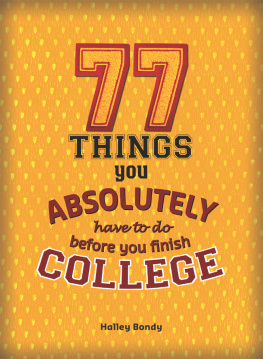

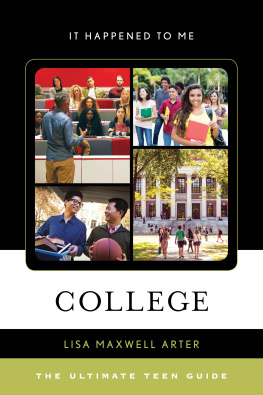
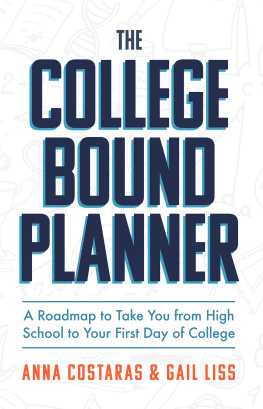
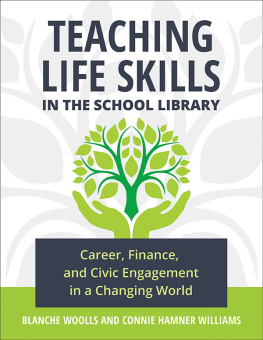

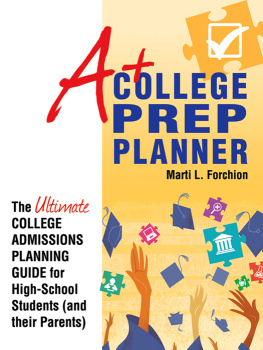
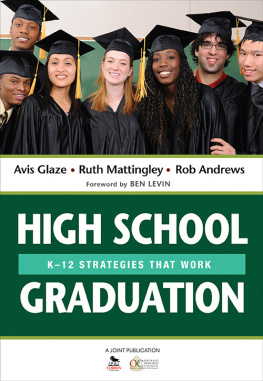
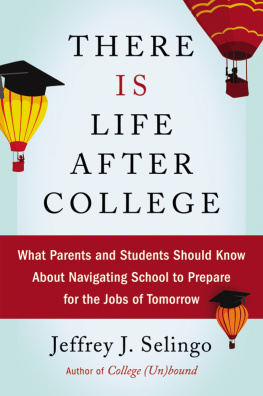
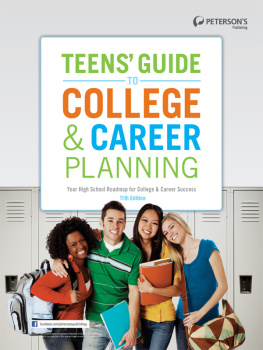

 35 Stillman Street, Suite 121
35 Stillman Street, Suite 121